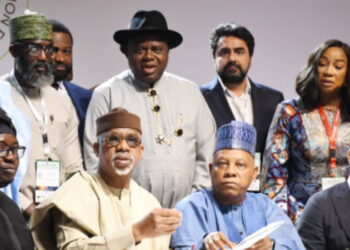Souleymane Cissé is widely acknowledged as one of the greatest African film-makers of all time – and the world’s most prestigious film festival, Cannes, agrees. The Mali-born director has been announced as this year’s recipient of the Carrosse d’Or (the Golden Coach) award. David Murphy, a critic and scholar of African cinema and Cissé’s work, told us more about why his films are so important – and particularly his classic Yeelen.
Who is Souleymane Cissé?
Cissé is a celebrated Malian film director who has been making movies since the early 1970s. He was born in Bamako in 1940 but his childhood was spent in Dakar, Senegal, then a neighbouring colony in the French west African empire. His father had moved there for work before returning to Mali after independence in 1960. He developed a love of cinema in Dakar and would later spend from 1963 to 1969 training to be a director in Moscow, Russia under the supervision of the great Soviet director Mark Donskoy (under whom legendary Senegalese film-maker Ousmane Sembène had studied a few years earlier).Cissé has directed just nine movies in 50 years (and only three since the start of this century). Then again, it has never been easy to build a career as a director in Africa (outside Nigeria’s Nollywood video industry at least).Cissé’s reputation largely rests on the quality of the four films he made in the most prolific period of his career between 1975 and 1987, culminating in the release of Yeelen (The Light), which won the Jury Prize at the Cannes Film Festival in 1987. It was the first African film to receive such critical recognition at a festival renowned for its celebration of pioneering new directions in film-making.
Where does he fit into African cinema history?
Yeelen was heralded not only as a critical breakthrough for African cinema on the international stage but also as the epitome of a new form of African film-making practice embedded in the oral narrative traditions and spirituality of west Africa.A beautifully shot film, Yeelen tells a mythical and highly symbolic story that pits a rebellious son against his tyrannical father. It’s set at an undetermined moment in precolonial Africa.This new film style was cast in opposition to the social realism that many critics saw as the defining feature of Francophone west African cinema in the 1960s and 1970s. (Sembène’s films were generally cited as the most accomplished examples of such work.) Cissé himself had been lauded for the politically committed social realism of his early films, the 1975 Den Muso (The Young Girl) and the 1978 Baara (Work).With Yeelen, he was now depicted by many critics as a director who had made the “transition” from social realism to a more symbolic, more mystical and consequently more “authentically” African form of film-making.Yeelen is often cited alongside other films that represent a rural Africa untouched by the western colonial presence, in particular Burkinabé directors Gaston Kaboré’s Wend Kuuni (1982) and Idrissa Ouédraogo’s Yaaba (1989).Collectively, these films began to be classified by certain critics as movies that rejected the modernity and socialist principles of the immediate post-independence decades. They were deemed to have turned away from western ideas and aesthetics and sought inspiration in an authentic, rural, precolonial Africa.As a film critic, I have never really accepted the various premises that underpin these arguments.
What is your view of this history then?
Firstly, social realism was never the uniquely dominant aesthetic of the 1960s and 1970s. In fact, it was not even the dominant aesthetic of the work of Sembène, with whom it was most closely associated by critics. Secondly, although each of Cissé’s early films – Den Muso, Baara, and Finyé (Wind) – can partly be situated within a naturalistic, social realist register, they all feature complex and quite opaque symbolic sequences.Cissé sets out his artistic beliefs in Cambodian director Rithy Panh’s beautiful 1991 documentary, Souleymane Cissé. He describes the inspiration for his films as an almost dreamlike, visionary process, but one firmly based in reality. In Finyé, it is water and wind that take on this symbolic role in what remains a highly political film that denounces military dictatorship.I’ve never been convinced by the idea that a specific mode of cinematic storytelling or a specific type of narrative (rural as opposed to urban, for example) could tap into an “authentic” African identity or culture.But I fully understand why the search for authenticity emerged in the 1980s. The dreams of independence had turned into neocolonial nightmares in much of the continent. There was a clear desire on the part of directors to give expression to elements of African life that were not seen as indebted to the culture of former colonial powers.
Why does this award matter?
This prize is awarded by the French Directors’ Association to reward a film-maker for the pioneering qualities of their work and the boldness of their cinematic vision. Previous awardees include celebrated western directors, including Martin Scorcese and Jane Campion, but also Cissé’s cinematic hero, Sembène.This is an important and deserved award. Cissé’s creativity may have waned in his later years but the awarding of the Carrosse d’Or rightly celebrates a director who for much of the 1970s and 1980s was one of the most inventive film directors, not just in Africa, but in the world. Here’s hoping the award will prompt more film lovers to discover his classic movies.



















